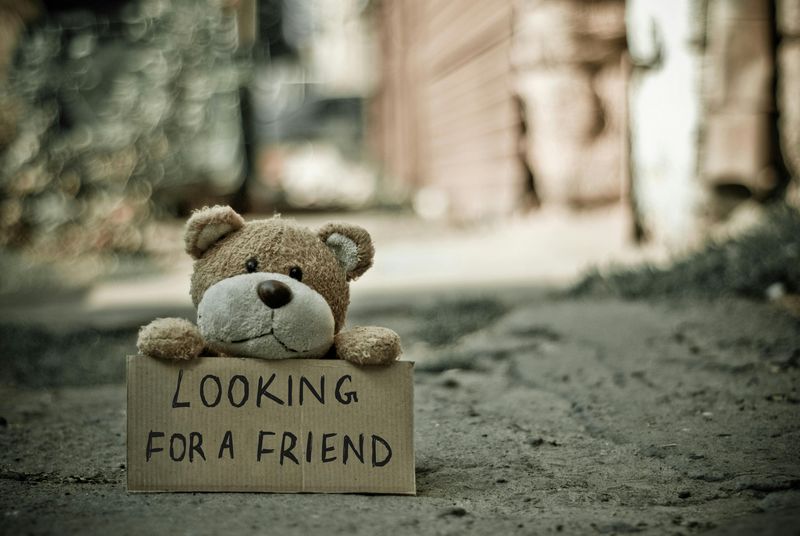13 Signs Your Friendship Feels More Like a Job Than a Joy

Good friendships should fill your life with laughter, support, and genuine happiness. But sometimes, relationships that once brought joy can start to feel like another task on your endless to-do list. Recognizing when a friendship has become more work than pleasure is important for protecting your mental health and making room for connections that truly matter.
1. You Dread Their Texts

Your stomach drops when their name pops up on your screen. Instead of excitement, you feel a wave of anxiety wash over you, wondering what drama or demand awaits.
Real friendships spark happiness, not stress. When someone’s messages consistently trigger worry or dread, something has shifted in the relationship dynamic. You might find yourself staring at their text, trying to craft the perfect response to avoid conflict.
Healthy communication flows naturally without constant worry. If checking your phone feels like opening work emails on vacation, your friendship has crossed into uncomfortable territory that deserves honest evaluation.
2. Cancelling Plans Feels Like a Relief

When they text saying they can’t make it, you practically celebrate. That weight lifts off your shoulders, and suddenly your whole day looks brighter. You might even do a little happy dance in private.
Genuine friends make you look forward to time together, not count down until it’s over. Feeling relieved when plans fall through reveals your true feelings about spending time with them. Your body knows what your mind might not want to admit yet.
Freedom shouldn’t be the best part of a friendship. If canceled plans consistently bring more joy than actual hangouts, something fundamental has broken down.
3. Conversations Are Exhausting

After talking with them, you feel completely wiped out. Every conversation requires so much emotional energy that you need a nap afterward. They dump problems on you constantly without ever asking how you’re doing.
Fun friendships energize both people through balanced give-and-take. One-sided emotional labor turns you into an unpaid therapist rather than an equal friend. You listen for hours while they barely pause for breath, never returning the favor.
Real connections shouldn’t leave you depleted. If talking to them feels like running a marathon without water breaks, the friendship has become dangerously unbalanced and needs addressing.
4. You Feel Obligated, Not Excited

Hanging out feels like fulfilling a duty rather than enjoying quality time. You show up because you feel like you have to, not because you genuinely want to be there. The whole experience feels mechanical and forced.
Friendship shouldn’t resemble mandatory overtime at work. When excitement gets replaced by obligation, the relationship has lost its spark and authenticity. You might catch yourself checking the time repeatedly, counting minutes until you can leave.
Enthusiasm matters in maintaining meaningful bonds. If spending time together feels like checking boxes on a chore list, reconsider whether this connection still serves your happiness and well-being.
5. You’re Always Walking on Eggshells

Every word you say gets carefully filtered through multiple mental checks first. You constantly monitor your tone, expressions, and topics to avoid setting them off. One wrong comment could trigger hours of drama or silent treatment.
True friends accept you without requiring constant self-censorship. Adjusting your entire personality to prevent explosions creates exhausting emotional labor that chips away at your authenticity. You deserve relationships where you can breathe freely and speak honestly.
Comfort and trust define healthy friendships. If you’re perpetually nervous around them, wondering when the next blow-up will happen, that’s not friendship—that’s stress management.
6. Emotional Unavailability

You’re their go-to person for every crisis, big or small. But when you need support, they suddenly become too busy or dismissive of your problems. They change the subject when you try sharing your struggles.
Balanced friendships involve mutual care and availability. When support only flows one direction, you’re essentially providing free therapy without receiving friendship benefits. Your feelings matter just as much as theirs, despite what the relationship dynamic suggests.
Reciprocity keeps relationships healthy and sustainable. If they’re never there when you need them but expect constant availability from you, the friendship has become dangerously imbalanced and unfair.
7. You’re Always Initiating Contact

Every text, call, and plan comes from your effort alone. You’re the only one reaching out, making arrangements, and keeping the friendship alive. If you stopped initiating, you wonder if they’d ever contact you again.
Friendship requires effort from both sides to truly thrive. Constantly being the relationship’s sole maintainer feels like pushing a boulder uphill alone. You shouldn’t have to beg for someone’s attention or time repeatedly.
Mutual investment shows genuine care and interest. If they never think to reach out first, they might not value the friendship as much as you do, which hurts to realize.
8. They Never Listen

Mid-sentence, they interrupt with their own story. Your words bounce off them like they’re wearing invisible headphones. They scroll through their phone while you’re talking, barely acknowledging what you’ve said.
Active listening demonstrates respect and genuine interest in friends. When someone consistently tunes you out or talks over you, they’re sending a clear message about your importance to them. You deserve friends who actually hear and value your thoughts.
Communication builds strong connections between people. If they treat your words like background noise while expecting your full attention, the relationship lacks basic respect and consideration.
9. They Make You Feel Guilty

Setting boundaries triggers guilt trips that make you question yourself. They sigh dramatically when you can’t help immediately or make passive-aggressive comments about your other commitments. You end up apologizing for having a life outside their needs.
Healthy friends respect your limitations without punishment. Manipulation through guilt keeps you trapped in an unhealthy cycle where their wants always override your needs. You shouldn’t feel bad for taking care of yourself or having other priorities.
Boundaries protect your mental health and energy. If they weaponize guilt to control your behavior, they’re prioritizing their desires over your well-being, which isn’t real friendship.
10. They Don’t Celebrate Your Successes

When good things happen to you, they respond with silence or quick subject changes. Your promotion gets met with comments about how stressful that job will be. Your achievements somehow become conversations about their own struggles or accomplishments.
Real friends genuinely celebrate your wins without jealousy. Someone who can’t feel happy for your success might be dealing with their own insecurities, but that doesn’t excuse making you feel bad for thriving. You deserve cheerleaders in your corner, not critics.
Support flows both ways in authentic friendships. If they downplay or ignore your victories, they’re not truly invested in your happiness and growth.
11. They’re Always Negative

Every conversation spirals into complaints, criticism, and doom-filled predictions. Nothing is ever good enough, and they find problems in every situation. Their constant negativity feels like a dark cloud following you around, blocking out sunshine.
While everyone has bad days, chronic negativity drains emotional energy relentlessly. You can’t fix their outlook, and their refusal to see anything positive becomes exhausting to witness. Life has enough challenges without volunteering for extra pessimism.
Positive energy matters for mental health and happiness. If they consistently pull you down rather than lift you up, protecting your own outlook might require distance from their toxicity.
12. Lack of Trust

You can’t share personal information without worrying it’ll spread everywhere. They’ve broken your confidence before, sharing secrets you explicitly asked them to keep private. Now you carefully filter what you reveal, knowing nothing stays between you.
Trust forms the foundation of meaningful friendships. Without it, relationships become shallow and guarded rather than deep and authentic. You shouldn’t have to protect yourself from someone who claims to care about you.
Rebuilding broken trust takes genuine effort and accountability. If they’ve repeatedly proven unreliable with your private thoughts and feelings, the friendship might be beyond repair and not worth maintaining.
13. You Feel Drained After Hanging Out

Walking away from time together leaves you completely wiped out emotionally and physically. You need hours to recover your energy, like you’ve just survived something rather than enjoyed it. Your mood drops instead of lifts after seeing them.
Quality friendships should refill your cup, not empty it completely. Feeling consistently drained afterward signals that something fundamental isn’t working in the relationship dynamics. Your body and mind are telling you important information about this connection.
Self-care sometimes means recognizing unhealthy patterns. If spending time with them regularly leaves you depleted rather than fulfilled, seriously reconsider whether maintaining this friendship serves your overall well-being.

Comments
Loading…